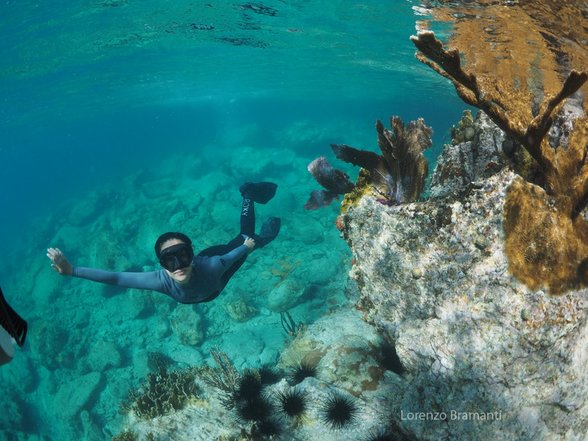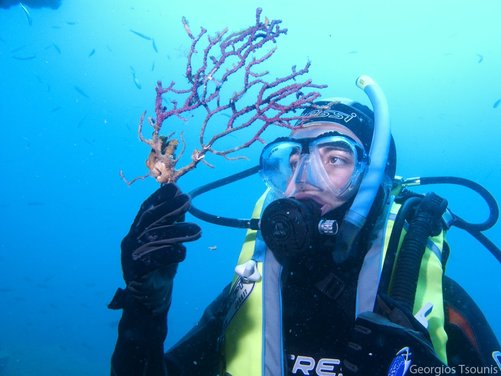The role of Ecology and Conservation in Today's Society

A friend and colleague who is a marine biologist and marine conservation activist recently said: “There is not anywhere on Earth not adversely affected by humans. Much, most, if not all, of the damage is irreversible, and it is proceeding faster and faster”. This sentiment is expressed by many nowadays, and it seems the enthusiasm for conservation that inspired me as a kid to go on and study marine biology is going extinct just like many coral species. It seems when Greenpeace and Jacques Cousteau were revolutionary, there was hope, whereas today resignation appears to spread. However, I take an entirely different view, and would go as far as emphasizing that today is as exciting an era as any before to be an ecologist, or engaging in any way in conservation.
You may have heard of the concept of shifting baselines, which basically describes that a paradigm shift takes place for every generation: for example, the healthiest Caribbean reefs I have seen have 45 % of live coral cover, while the previous generation of marine biologists was studying reefs that harboured more than 90 % living corals some decades ago. They have seen first-hand the enormous loss of fish abundance and coral cover, when I can only read about it. Psychologically their dominating sensation when swimming through today’s reefs is sadness, when I am still blown away to see what is there.
But here is the big point about why conservation is still important: The current reefs are providing what is called ecosystem services, which basically are all sort of functions that we need. For example, kelp forests provide food and habitat for fish; coral reefs protect the coasts from erosion, provide habitat and change biogeochemical processes that increase ecosystem diversity and productivity. We depend on a healthy environment for real estate (look at the lovely landscape where they build golf courses), livelihood (such as fishery, agriculture and tourism), and recreation. When a crucial part is altered, the results end up being catastrophic: When fishermen extirpated Californian sea otters, the urchin populations were left unchecked, and devoured the kelp forests that were acting as fish nurseries. The fish were gone with the otters and the kelp. There are enough examples for a separate article and books have been written about events like these...
So the question whether what is lost will recover or not is not our priority in conservation. We need what is still left, and more importantly, future generations will need what is left of our natural environment. The view that must define our environmental responsibility is what Jacques Cousteau emphasized: "We Do Not Inherit the Earth from Our Ancestors; We Borrow It from Our Children". So in that light it is an outrageous crime what poor environments we are leaving behind for the coming generations.
You may have heard of the concept of shifting baselines, which basically describes that a paradigm shift takes place for every generation: for example, the healthiest Caribbean reefs I have seen have 45 % of live coral cover, while the previous generation of marine biologists was studying reefs that harboured more than 90 % living corals some decades ago. They have seen first-hand the enormous loss of fish abundance and coral cover, when I can only read about it. Psychologically their dominating sensation when swimming through today’s reefs is sadness, when I am still blown away to see what is there.
But here is the big point about why conservation is still important: The current reefs are providing what is called ecosystem services, which basically are all sort of functions that we need. For example, kelp forests provide food and habitat for fish; coral reefs protect the coasts from erosion, provide habitat and change biogeochemical processes that increase ecosystem diversity and productivity. We depend on a healthy environment for real estate (look at the lovely landscape where they build golf courses), livelihood (such as fishery, agriculture and tourism), and recreation. When a crucial part is altered, the results end up being catastrophic: When fishermen extirpated Californian sea otters, the urchin populations were left unchecked, and devoured the kelp forests that were acting as fish nurseries. The fish were gone with the otters and the kelp. There are enough examples for a separate article and books have been written about events like these...
So the question whether what is lost will recover or not is not our priority in conservation. We need what is still left, and more importantly, future generations will need what is left of our natural environment. The view that must define our environmental responsibility is what Jacques Cousteau emphasized: "We Do Not Inherit the Earth from Our Ancestors; We Borrow It from Our Children". So in that light it is an outrageous crime what poor environments we are leaving behind for the coming generations.
